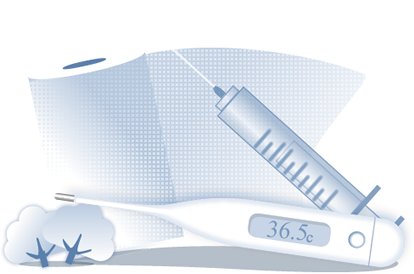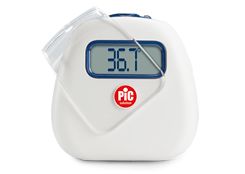
Reduce fever! 5 secrets to getting it down
Had enough of your fever? Drink lots of water, wear layers, and apply ice packs. Final advice? Try taking a tepid shower. .
Here are 5 remedies to reduce fever. Don’t forget that they are stopgap solutions which may not resolve the problem, but may help to reduce the fever until you see a doctor or your medication takes effect.
Drink a glass of water every hour: hydration limits fever
If you have a fever, your body sweats and loses fluids and minerals. A glass of water an hour, equivalent to about 2 liters a day, will help to reduce the fever by hydrating you correctly and reducing side effects such as headache, fatigue and muscle pain. One piece of advice: are you over 65? Drink up to 2.5 liters of water a day to reduce the fever. .
Eat probiotic foods, fruit and vegetables
Probiotic foods, such as soy, yoghurt, and cabbage and sauerkraut, contain beneficial bacteria that already live naturally in your body and help to reduce fever. Try eating these - they'll also aid your digestion. And your anti-fever menu should include soup and vitamin-C-rich fruit such as kiwis and oranges.
Tepid shower or ice will reduce a fever, but won't make it go away
If you have a raging fever, an ice pack on your forehead or a tepid shower will help to reduce your temperature. Contact with something cold creates a heat exchange between your body and the outside world: this is one of the main laws of nature. But you should know that while this treatment will have an immediate effect, and your body temperature will fall quickly, it will only reduce your temperature for a few hours.
Wear layers
If you want to reduce a fever, don't put on a coat indoors. Donning more clothes doesn't achieve anything, and may make the situation worse. Need to reduce a baby's or small child's fever? Don't put too many clothes on them: let the heat disperse. But if you're a few years older, you can reduce a fever by dressing in layers; the same applies to chills.
Total rest reduces a fever
Here's a good way of reducing a fever and recovering your energy. If you have a high fever, your body is subjected to additional stress as it fights the infection. Bear in mind that for every degree of temperature increase, your metabolism consumes 12 percent more calories than during normal everyday activity. So what should you do to reduce the fever? Sit in an armchair or on a bed, in a warm but well ventilated environment, and take it easy: rest is good for you!









